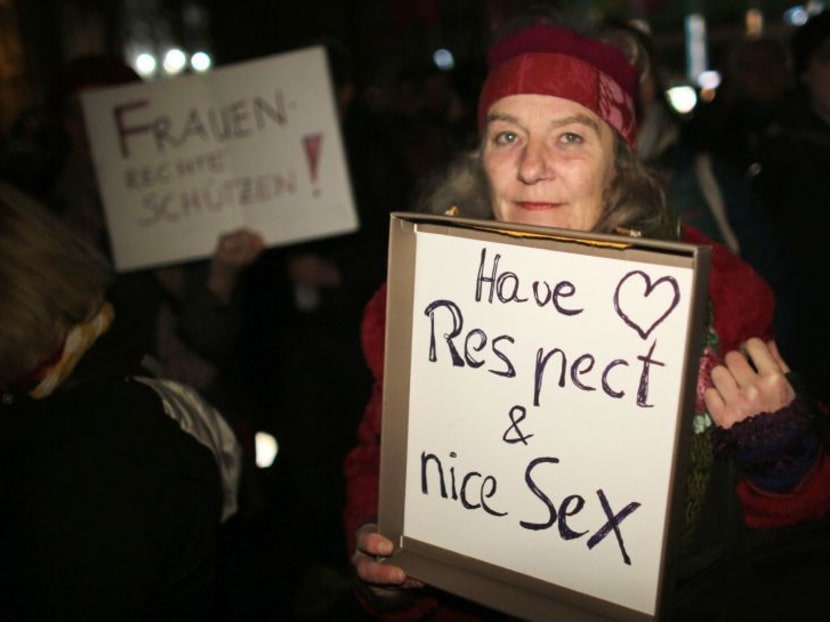Education needed to prevent victim-blaming in sexual harassment cases
I am deeply grateful to Judicial Commissioner Aedit Abdullah, who spoke up during a recent case, where a 22-year-old student was raped by Ong Soon Heng (“Judge raps netizens for negative comments about rape victim”; Sept 14).

A woman at a demonstration flashes her disapproval of apparently coordinated sexual assaults against women on New Year’s Eve in Cologne. Photo: AFP
I am deeply grateful to Judicial Commissioner Aedit Abdullah, who spoke up during a recent case, where a 22-year-old student was raped by Ong Soon Heng (“Judge raps netizens for negative comments about rape victim”; Sept 14).
He said that she was completely defenceless at that point in time and that such comments “serve no purpose other than allowing (the commentators) to mouth off ... and play up their (own) prejudices”.
I agree with him, and such comments could potentially discourage victims from coming forward to seek help from the authorities, because of the fear of being blamed by others, distrusted, or accused of trying to seek attention.
This was also addressed in the commentary, “What happens when women speak out against sexual harassment?” (Oct 30), touching on the sexual harassment scandal involving Hollywood producer Harvey Weinstein.
People came forward to share similar experiences. No doubt, they were hoping to show the magnitude of such problems and to denounce such behaviour.
I imagine it must have been difficult for these women to recall these incidents.
What disturbs me though, are the responses by people towards such cases. They are often remarks chastising the victims, accusing them of lying or of trying to seek attention.
Some even told the women to accept sexual harassment and sexist jokes “as a norm”.
This issue also affects men. As the Association of Women for Action and Research’s executive director Corinna Lim pointed out, male victims of sexual harassment are often in a more difficult position than their female counterparts. This is because of long-held perceptions on masculinity and men end up feeling more “shame”, that people would think badly of them for not being able to stand up for themselves.
To address such prejudices towards victims, male or female, I feel that public education on such issues is necessary, perhaps as part of a sex education syllabus in schools, to groom the younger generation to be more aware and sensitive towards such conduct, and also to positively influence their parents and grandparents.
Everyone has some form of gender bias, including myself. However, what is important is that we all strive to learn more about such abuse and discrimination, and to be more understanding and less judgemental and dismissive towards victims.






